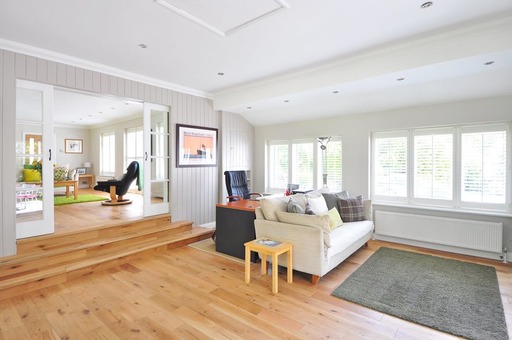1. The Price is Right (or it needs to be!)
Have you ever fallen in love with an item in the store, but when you saw the price tag decided it wasn’t worth the cost? Maybe you decided to just wait until there’s a sale, figuring that the price would come down before the item sells out. If you’re selling your home, this is exactly what you don’t want to do. Getting the price of your home right can be one of the most difficult parts of the home selling process. Especially in a “hot” market like we’re experiencing now. If you price it too high, it’s going to take time to sell, but if you price is too low, you’re leaving money on the table.
One option would be to work with a real estate agent. Real estate agents have access to tons of information about previous home sales. For example: they can tell you about another home that was built in the same year, with the same number of beds and baths, with the same size lot just sold for $152,000 in 3 days! This info helps them suggest a proper price. While some people shy away from using an agent in the sale of their home, usually being deterred by the commission, a real estate agent can help you sell your home for a higher price, leaving you with more money–even after figuring in their commission.
Tip: If you’re not planning to use an agent, make sure you do your homework. Your first step will be to get a home appraisal. This will give you a good frame to start your pricing on. You’ll also want to check sites like Zillow or Redfin. You can see the estimated value of your home on these sites, but they can be off by tens of thousands of dollars. So, the best use for these sites is to research homes similar to yours. Not only can you see how much homes like yours are listed for, but also how long they’ve been on the market. Additionally, you can see the sale history. This research will ensure that you’re getting pricing where it needs to be.

2. Prepare to be Seen
Before you stick the sign out in the yard or list your property online, you’ll want to make sure your home is ready to be seen. If you’ve already moved into another home, this will just be a deep clean of the home for sale. If you’re still living in this home, you’ll want to make sure it is picked up and ready to show at anytime. Staging the home by adding extra decorations or “homey” touches is great, but clutter-free and clean are the minimum.
Tip: If you’ve got the time and budget, it’s a good idea to throw a fresh coat of paint on the walls–especially if that hasn’t been done in a few years. Most advisers will tell you to not spend money on renovations before you move. However, a fresh coat of neutral paint is known help entice buyers and get you a great return on investment.

3. Get the Word Out
There’s a reason that real estate agents always put signs in the yard of the homes they’re selling–they work! Prepare yourself for it to work really fast as well, depending on your market. If you’re in a city or larger town and have a home in the low to middle-high price range, it’s very possible that as soon as you put the sign up, you’ll have people calling and knocking on your door. Make sure you’re prepared to take the next steps as soon as that sign hits the ground.
Tip: Not everyone lives in an area with a booming real estate market. For example, you may live in a rural area and you don’t see a lot of drive-by traffic. If this is the case, you’re going to need another tactic to sell your home. There are many websites that will list your home for free. However, because these are free listings, you may just blend in to the rest of the listings on the site. Another option to consider is an advanced marketing option like event marketing. Using an online event marketing platform, your home will stand out because of the interest gained through range pricing. Think of an opening bid and “Buy It Now” pricing – you’ll gain interest from those searching the lower price ranges and interest from those who want to jump on a deal right away. But, you still retain control of the final sale price. You can learn more about how this works here.

4. Understand the Players
If you’re handling the sale of your home without the help of an agent, it will be up to you to coordinate showings. Most buyers will not want to purchase the home sight-unseen, so expect to let potential buyers in for a look. In many cases, this includes buyers who are working with an agent. It may be uncomfortable for you to allow strangers to roam your house. However, this is how buyers fall in love with a property.
Tip: If you’re working with a seller directly, it’s a good idea to stay on premises, but if they have an agent the best thing to do is leave. The buyer’s agent will facilitate the showing (after all, they want their client to find a home), and it stops you from talking the buyer out of a sale.

5. Know the rules
This part gets a bit trickier for home selling DIY-ers. The laws concerning real estate vary by state. There are laws as to what the necessary inspections are, the time frame for everything to be completed and what needs to be disclosed to the new buyers. In some states you need to tell potential buyers if there was a death in the home, in other states you are required report on your annoying neighbors, and the list goes on. In short, know the rules or risk getting sued.
Tip: Even if you choose to not use a real estate professional in your home selling, that doesn’t mean you should completely go this process alone. Selling real estate comes with many financial, legal, and tax implications so it’s best to consult a lawyer and an accountant with real estate expertise that can help ensure you have the proper documents and don’t wind up with any costly surprises down the road.
Selling your home is a very exciting process. It can lead to many positive changes and help set you up for future financial success, but it’s important to consider all the moving parts to make sure your experience is a positive one!













